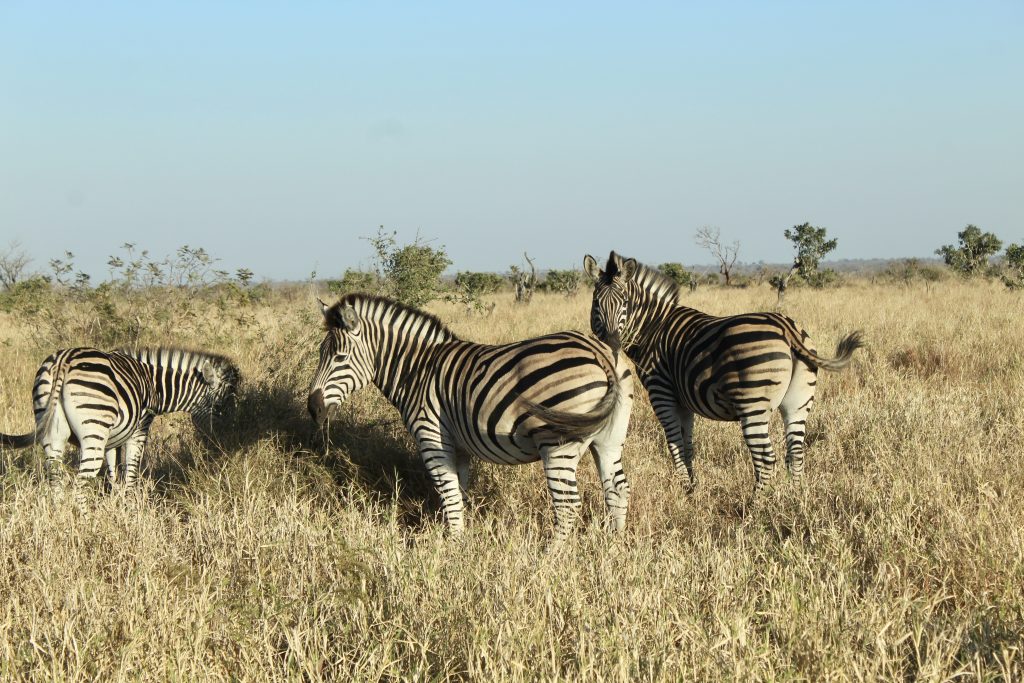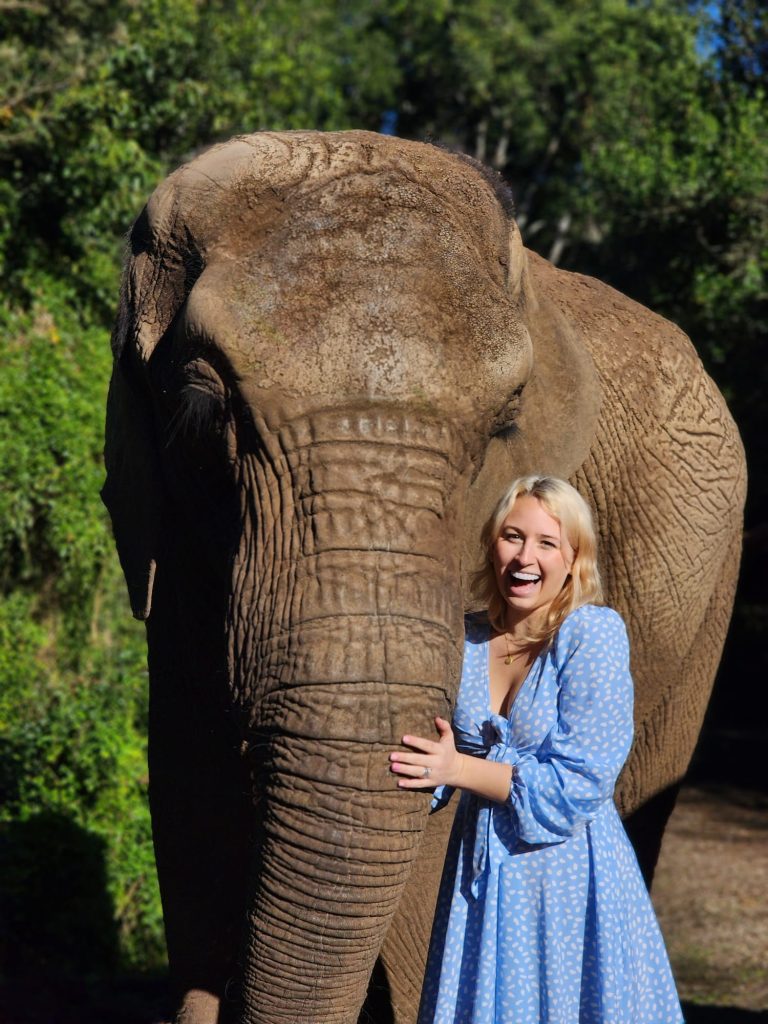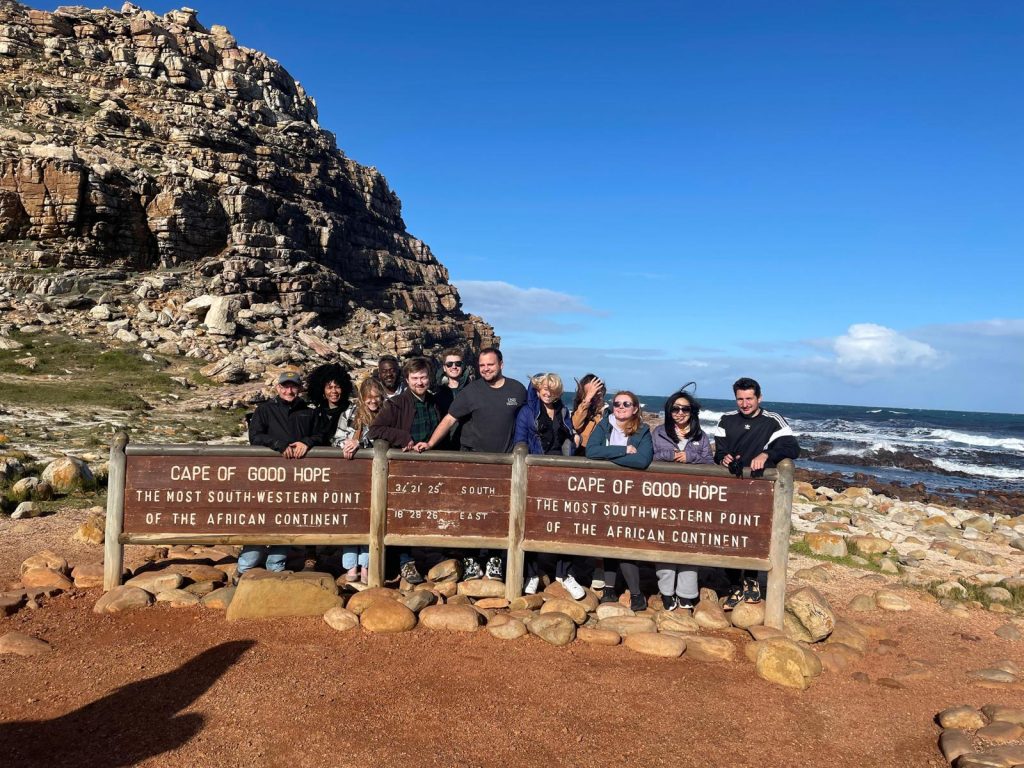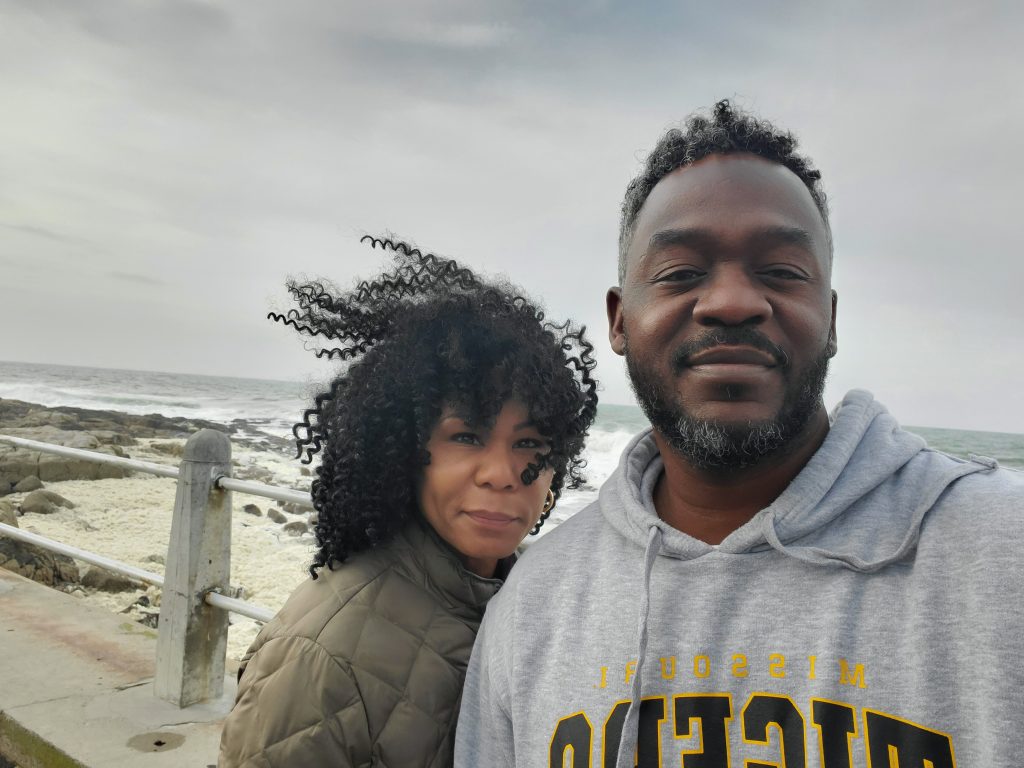Kruger Park

For many past students, the trip to Kruger National Park was the highlight of their entire South African experience. Kruger Park is the largest game reserve in South Africa and one of the best places in the world to see the “Big Five” (rhinos, leopards, lions, elephants, and cape buffalo). As part of the South African Study Abroad Program this summer, Professor Uphoff will lead an optional trip to Kruger from July 19 – July 23.
We will leave Cape Town at 8:00 a.m. on July 19 and fly to Kruger international airport(MQP). We will drive into Kruger Park and the first night will be spent in bungalows at Berg-en Dal, an enclosed camp located in one of the best game viewing areas of the park.
The following day we will do a self-drive looking for wildlife and return to camp around 9:00am for breakfast. We will then drive to the Lower Sabie camp and after checking in, we will go on a three-hour sunset drive lead by a park ranger leaving at 4:30. The next morning, we will again do our own self-drive returning around 9:30 or 10:00. That afternoon we will again go on a park ranger led sunset drive. On the morning of July 23, we will drive through the park and leave the park around 1:30 to drive back to MQP for a flight back to JNB (or Cape Town) and then fly back that evening to the U.S.
The trip will cost $550 and includes three nights in bungalows or safari tents in Kruger Park at Berg-en Dal and Lower Sabie, transportation to and from MQP to the Park, daily self-drives in the park, two sunset game drives led by a Kruger Park Ranger, and all conservation fees in Kruger. Food and drinks are not included but there are kitchens/ grills on the porch of the bungalows or safari tents and very reasonable restaurants available for those who do not want to cook. The flight to MQP and from MQP to JNB is not included and it costs around $200.

Cape of Good Hope/Cape Point

The Cape of Good Hope and Cape Point are the southwestern most points of Africa (Cape Agulhas, located 90 miles to the east is the southernmost point). The Cape of Good Hope is a rocky headland on the Atlantic Ocean side of South Africa and probably the most famous of the South African capes. When the Portuguese rounded this Cape in 1488, it was the first major milestone in the many attempts to establish a sea route to the Far East. When we visit Cape Point, you will see absolutely breathtaking scenery, as the entire southernmost portion of the Cape Peninsula is an unspoiled national park with at least 450 species of natural birds and 1100 species of indigenous plants. If we are lucky, we will see ostrich, bok (antelope) and baboons at Cape Point. We also will stop at Boulders Beach in Simon Town, a nature reserve that houses a colony of African penguins.
Organized Field Trips

District 6 Museum
This museum honors the rich and tragic history of the District Six area of Cape Town. District Six was a vibrant area in Cape Town established in 1867 as a mixed community of freed slaves, merchants, artisans, laborers and immigrants. In 1966, the government declared District 6 a white area under the Group Areas Act of 1950 and forced over 60,000 people to relocate to nearby townships. The area was mostly flattened by bulldozers and remains only sparsely developed.
Robben Island
Located seven miles off the coast of Cape Town, this island has served as a leper colony and later as a prison for political prisoners. Nelson Mandela spent 19 of his 26 years in prison at Robben Island. Many of the tour guides are former prisoners.
Wynberg Magistrates Court
Wynberg is a diverse southern suburb of Cape Town. The magistrate courts are the lower courts in South Africa handling both criminal and civil cases. About 95% of cases in South Africa are handed in magistrate courts.
Goodwood Prison
Goodwood Prison is a relatively new prison, opening in 1997. South Africa’s criminal justice system is different from the United States’ in that prisoners waiting to be sentenced and those who have already received prison sentences are housed together.